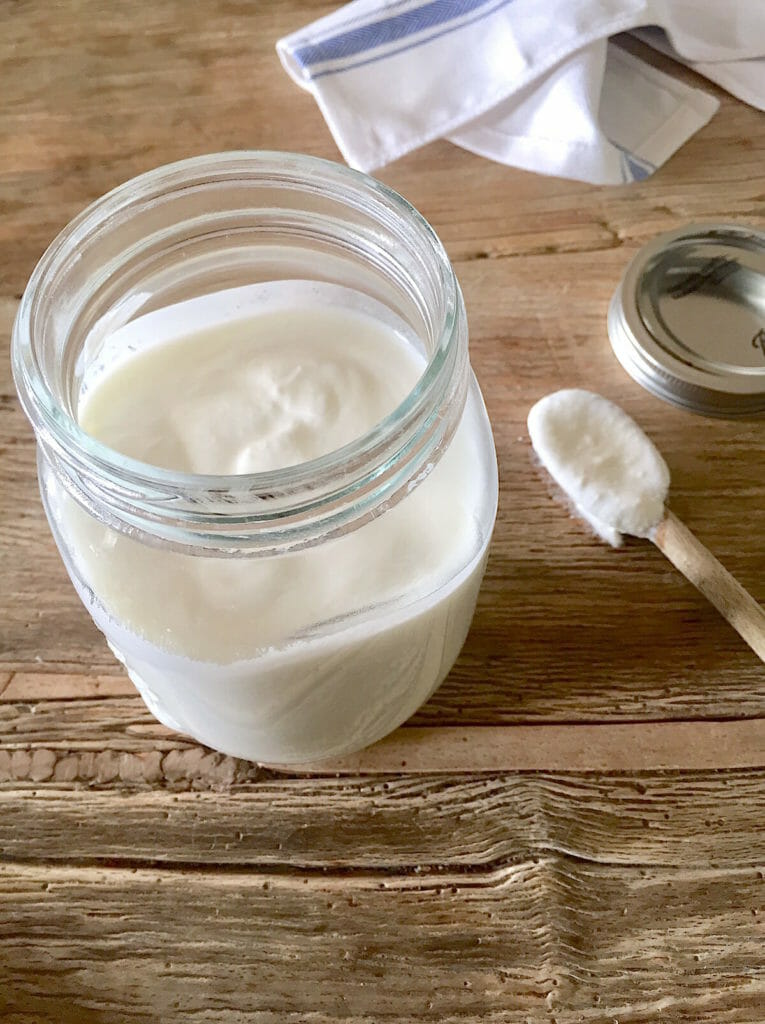New developments in food manufacturing don’t typically mean good news for public health. Do we really need another twist on the nacho cheese chip or a soda spinoff with double the caffeine? No, which is why I’m pleased as punch when I see real improvements and better offerings at the supermarket. Case in point is what’s happened in the yogurt aisle over the past few years. Below is a handful of upgrades and additions worth paying attention to when it comes to getting your culture on.
It looks like yogurt companies are getting on board with Dietary Guideline recommendation to scale back sugar. Stonyfield Farms has cut the sugar in its YoKids line to 9 grams or less per serving (that’s total sugar, which includes naturally occurring lactose). It also plans to eliminate added sugar altogether in its YoBaby products. Siggi’s has always been conservative on the sweetening scale and continues to lead mainstream brands in laying off the sugar shaker.
Organic Valley, Stonyfield Farms, and Maple Hill Creamery are a few grass milk yogurt brands that have tripped across my radar. Milk from grass-fed cows is higher in good-for-you fatty acids, including conjugated linoleic acid and omega-3 fatty acids. It tastes different too, which makes sense since the cows dine on grass, not grain. Expect an uptick in price and be aware that there is currently no government standard for what the “grass-fed” label means, so know your brands. The ones mentioned above are all 100 percent grass milk.
Plant-Based
The options for vegans or those with a dairy allergy or intolerance have expanded big time. Dairy-free yogurts have the same essential bacteria as conventional yogurt, but very different flavor depending on brand and type of milk. They are all over the map nutritionally, since plant milks vary in nutrient profile. Kite Hill is getting a lot of buzz for its creamy almond milk yogurt. CoYo offers a coconut milk option. And a number of manufacturers produce soy milk yogurt, including Trader Joe’s, Stonyfield Farms, and Nancy’s. Head here for a list of dairy-free brands. Lastly, don’t assume “vegan” is code for “healthy”. You still need to read the label to look for mystery ingredients and added sugars.
Sheep and Goat Yogurt
Both sheep and goat milk have distinct flavors, as does the yogurt made from the milk. Goat yogurt is lower in lactose than conventional yogurt, so may be more easily digested by folks with a dairy intolerance. It also has an earthy, shall we say “barnyard” flavor that doesn’t appeal to everyone. Sheep’s milk is higher in protein and fat than cow’s milk, which makes for a rich and creamy yogurt. Fun fact: both sheep and goat milk are naturally homogenized, meaning the fat doesn’t separate out and float to the top like cow’s milk.
Artisanal
Perhaps it would be more accurate to name this category “expensive”, since some of the small-batch manufacturers are pretty pricey. That said, a few of these artisanal makers put out some of the best yogurt I’ve ever eaten. Top on my list is San Benoit, based in Northern California, and White Moustache, which is an essential purchase whenever I visit my sister in New York City. Both brands are packed in charming glass jars that can be repurposed for various kitchen and craft projects. Blue Hill is another quality brand, which comes in savory rather than sweet flavors. Parsnip yogurt anyone??
Homemade
If you want to get truly artisanal, you can go homesteader and make your own yogurt. You’ll find a tutorial on a stove-top method by heading here. I’ve also just finished my first batch of Instant Pot yogurt after reading the “how to’s” on Homemade Mommy, and This Old Gal.
What are some of your best finds in the yogurt aisle. Favorite brands? Do tell.
